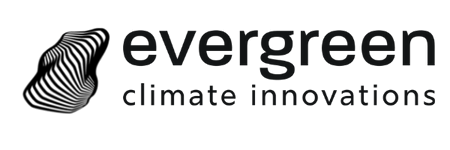Clean energy and clean vehicle jobs in North Dakota set a record in 2023, growing to more than 9,000 jobs – a 3.8 percent increase over the previous year. Following federal climate investments passed in 2022, the industry is poised for more growth.
Quick Facts
Clean energy and clean vehicle companies employ more than 9,000 North Dakotans, topping the pre-COVID-10 record of 9,158 set in 2019. Jobs increased 3.8 percent (+335) in 2023. Clean energy’s economic role in the region is vital: the industry added jobs over 2 times faster than North Dakota’s overall economy, and more than 5 times as many North Dakotans work in clean energy than the number of lawyers, web developers, and real estate agents combined. Job growth is expected to surge in 2024 (+5.7 percent). If federal clean energy and clean vehicle incentives are rolled back, the job growth and resurgence of clean energy manufacturing could be at risk.
Clean Energy Jobs in North Dakota

Energy efficiency comprises well over half of North Dakota’s clean energy jobs. These 5,293 North Dakotans spend their workdays doing things like manufacturing ENERGY STAR-rated appliances; installing efficient lighting; connecting heat pumps and other highly efficient heating, ventilation, and air conditioning systems; and constructing homes and commercial buildings using advanced materials like low-carbon concrete.
North Dakotans working in the clean vehicle sector, including electric vehicles (EVs), hybrid EVs, plug-in hybrids, and hydrogen and fuel cell vehicles, still registered a 8-percent year-over-year spike, adding 64 new jobs for 910 workers. Within the clean vehicle sector, EV jobs had the steepest growth rate at +8.6 percent.
Renewable energy job growth in solar (+9.6 percent) and wind (+1.6 percent) continued across North Dakota as did growth in grid & storage sector jobs, driven by emerging subsectors like battery storage (+2.9 percent) and smart grid modernization (+3.9 percent).
Jobs by Sector

Policies Matter
Whether it’s a $7,500 tax credit to purchase a new EV or a manufacturing tax credit that spurs a company to develop a multi-billion-dollar battery gigafactory, federal policies like the Inflation Reduction Act (IRA) are enabling an American business revolution. To meet the nation’s goal of reducing climate emissions 50-52 percent by 2030 compared to 2005 levels – while also making the growing clean energy workforce better-skilled and more equitable – lawmakers should:
- Defend federal clean energy and clean vehicle investments: Since the IRA passed in August 2022, more than 85 large-scale clean energy projects have been announced across the Midwest, according to E2’s Clean Economy Works analysis. That’s more than a quarter of all projects announced nationwide. These projects are expected to spur $31.2 billion in private-sector investments and create more than 87,000 Midwestern jobs. However, the provisions enabling much of this economic activity remain under constant threat, with at least 31 attempts to roll back parts of the IRA so far.
- Develop and fund federal and state workforce development programs: One of the biggest challenges to expanding clean energy job opportunities is filling open positions. Workforce training will be critical to continued industry growth, with 98 percent of clean energy employers in North Dakota reporting at least some difficulty hiring workers.
- Invest in transmission: Federal and state governments must work with Midwestern transmission organizations to ensure wind and solar projects are able to connect to the grid and move clean, renewable power throughout the region.
- Advance state-level clean energy policies: North Dakota can advance supportive policies for renewables, energy efficiency and EVs. Doing so capitalizes on the unprecedented federal investments and incentives and helps create thousands of new job opportunities.
Subsector Details

Value Chain
Across all clean energy sectors, the majority of clean energy jobs in North Dakota were in construction and trade.

Job Highlights
Learn even more about clean energy jobs in North Dakota.
More Jobs DataUnless otherwise stated, data and analyses presented in this report by Evergreen Climate Innovations and E2 (Environmental Entrepreneurs) are based on data collected for the 2024 U.S. Energy Employment Report, produced by the U.S. Dept. of Energy and collected and analyzed by BW Research Partnership.



